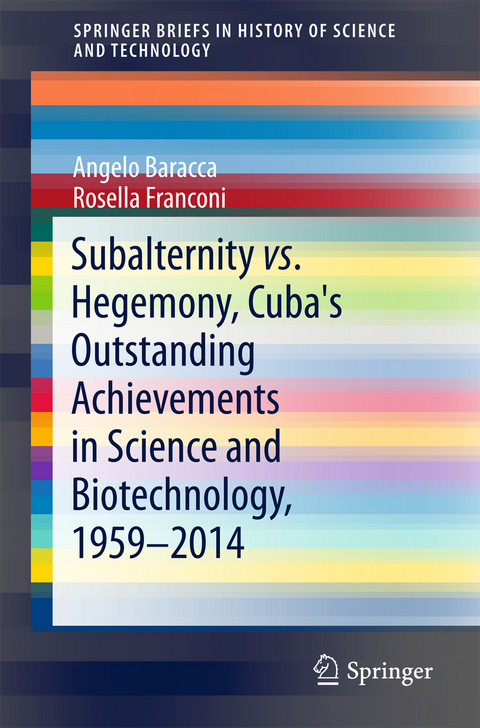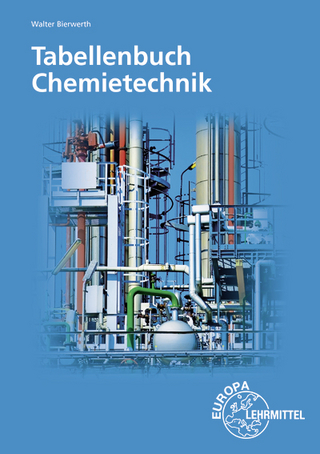
Subalternity vs. Hegemony, Cuba's Outstanding Achievements in Science and Biotechnology, 1959-2014
Springer International Publishing (Verlag)
978-3-319-40608-4 (ISBN)
The present book introduces an original (new) perspective on Cuba. This book revisits Cuba's choice, after the 1959 revolution, to develop an advanced healthcare and scientific system. It also introduces new aspects of the problem development/underdevelopment. From the start, every effort of the Cuban leadership and scientific community was driven by the primary purpose of meeting the country's basic economic and social needs. Immediate key measures taken after the revolution included free education up to higher levels and free health services. In only a couple of decades Third World diseases were defeated and a First World health profile was achieved. In the sciences, support and collaboration was sought and welcomed from both Soviet and western countries. Moreover, due to the backward position of the Soviet Union in genetics and molecular biology, in the early 1970s Cuban scientists were trained in these fields mainly by Italian biologists. In the following decade, initially relying on contacts with American and Finnish specialists, Cuban biologists and physicians built a large industrial biotechnology complex to produce and commercialize Cuban-made, and often invented, medicines and vaccines.
In the early 1990s the sudden collapse of the Soviet Union and the socialist market created an unprecedented challenge. Yet Cuba's scientific system substantially resiled, despite unavoidable setbacks. This crisis was faced by confirming and reinforcing government support for biotechnology, with the result that today Cuba excels at a global level in the typical capital-intensive field of biotechnology.
While this book is especially devoted to historians of science and technology and to biotechnologists, it is of interest to the general public.
Angelo Baracca has been a Professor since 1968, and an Associate Professor of Physics from 1980 at the University of Firenze. Has taught courses in: Statistical Mechanics, Elementary Particles, History of Physics, Physics for Pharmacy, and Biological Sciences. His main interests and activities cover: nuclear technology, both military and civil, its historical development and present status; science and industrial revolution, the 20th century revolution in physics. For 20 years he has collaborated with the Faculty of Physics of the University of Havana, Cuba, and has developed a comprehensive history of the development of Physics and Biotechnology in Cuba.Rosella Franconi is a senior scientist at the Laboratory of Biomedical Technologies at ENEA, Casaccia Research Centre, Rome (since 1989). Also a ‘Contract Professor’ in different Universities (‘Sapienza’, Rome: Applied Biology; ‘Tuscia’, Viterbo: Pharmaceutical Biotechnologies; ‘Tor Vergata’ Rome: Plant Biotechnologies for the Environment and Human Health; Siena: Scientific Communication on Plant Biotechnologies). She is a Member of various scientific societies and an author of papers in international journals, book chapters and patents. Present research field: novel biopharmaceuticals (infectious agents, cancer, rare diseases).
Chapter 1. Introduction. Cuba's exceptional scientific development.- Chapter 2. Meeting subalternity, a constant challenge in Cuban history.- Chapter 3. Addressing the challenge of scientific development: the first steep steps of a long path.- Chapter 4. Reaching a critical mass and laying the foundations of an advanced scientific system.- Chapter 5. The decisive leap in the 1980s: the attainment of Cuba's scientific autonomy.- Chapter 6. Decisive results ... and new challenges.- Chapter 7. Comparative considerations and Conclusions.
"Subalternity vs. Hegemony is a slim volume, part of the SpringerBriefs series, which aims to provide rapid publication of concise introductions to emerging research. ... Baracca and Franconi have raised a variety of intriguing questions about the relationship between scientific and economic development, and this volume will be attractive to those looking for a concise introduction to the educational reforms and scientific institutions of postrevolutionary Cuba." (Megan Raby, Isis, Vol. 108 (3), September, 2017)
| Erscheinungsdatum | 08.10.2016 |
|---|---|
| Reihe/Serie | SpringerBriefs in History of Science and Technology |
| Zusatzinfo | XII, 103 p. |
| Verlagsort | Cham |
| Sprache | englisch |
| Maße | 155 x 235 mm |
| Themenwelt | Medizin / Pharmazie |
| Naturwissenschaften ► Chemie ► Technische Chemie | |
| Technik | |
| Schlagworte | Biomedical and Life Sciences • Biomedical Engineering/Biotechnology • Biotechnology • Biotechnology in Developing Countries • Development vs. Underdevelopment • Genetic Engineering and Vaccines in Cuba • health systems • Latin American culture • Medicine/Public Health, general • Pharmaceutical Sciences/Technology • physics, general • Scientific Development • Subalternity vs. Hegemony |
| ISBN-10 | 3-319-40608-6 / 3319406086 |
| ISBN-13 | 978-3-319-40608-4 / 9783319406084 |
| Zustand | Neuware |
| Haben Sie eine Frage zum Produkt? |
aus dem Bereich


